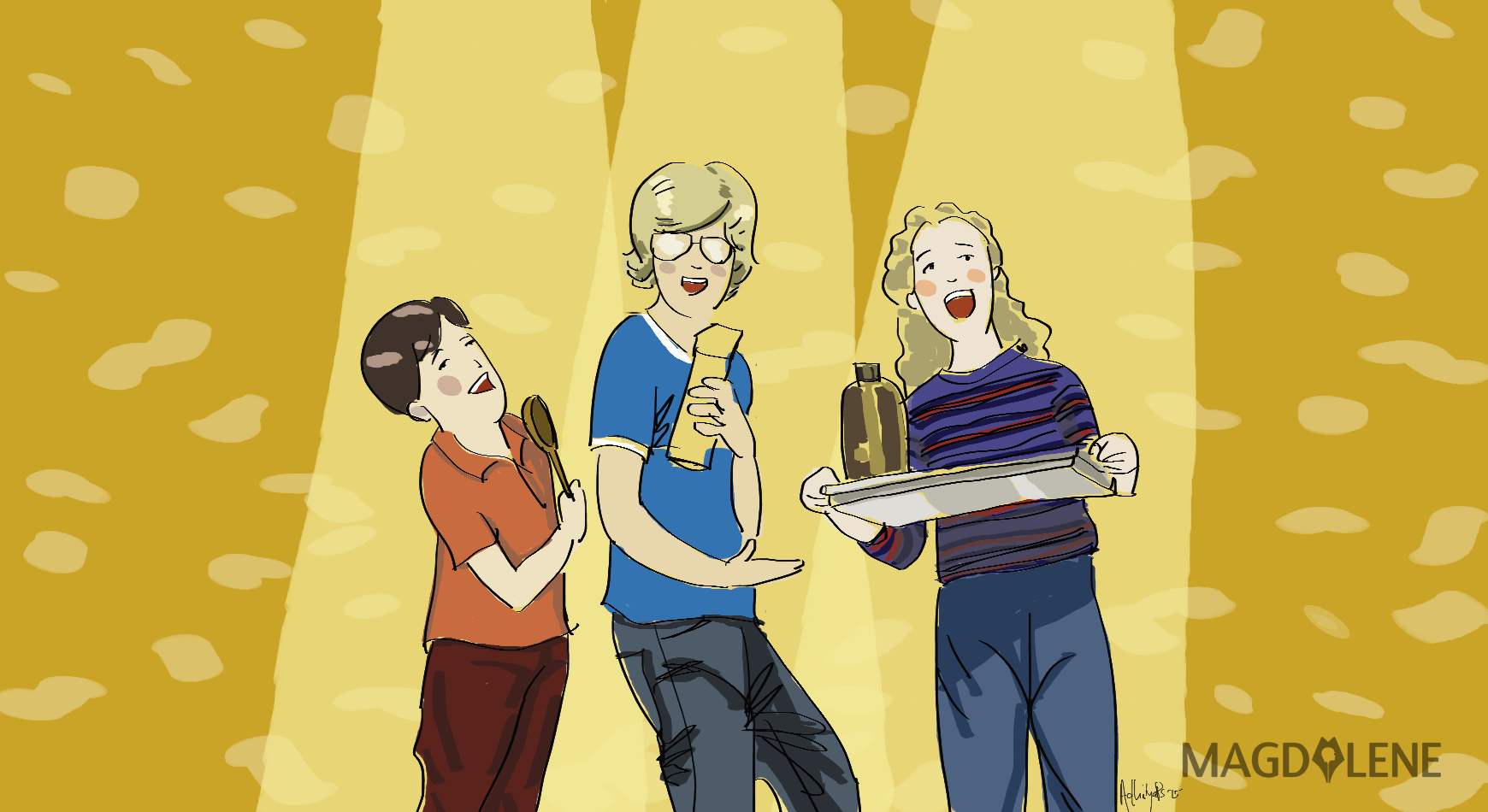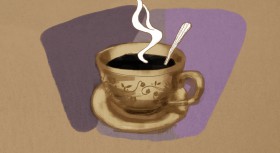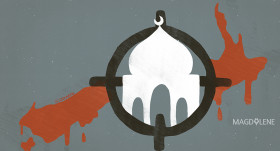Despite glowing reviews and a whopping 12 nominations, no one really expected Fun Home to be the star of the evening at the Tony Awards ceremony earlier this month. The "small show" collected awards in major categories, stole hearts with a low-key but show-stopping performance by its 11-year-old star Sydney Lucas, and won the top prize for Best Musical. It triumphed over much bigger, flashier productions like frontrunners An American in Paris and Something Rotten!.
Fun Home – a coming-of-age musical based on the acclaimed graphic memoir by lesbian cartoonist Alison Bechdel (yes, the same woman that invented the famous Bechdel Test for movies) – has been defying odds since its conception in 2009.
Faithful to the memoir, the musical puts Bechdel's story center stage - of growing up as a lesbian in a dysfunctional home, and her relationship with her father, who turned out to be a closeted homosexual and who eventually committed suicide.
Not exactly your classic successful Broadway musical formula, which typically revolves around bright subjects, spectacular dance numbers or eye-popping stage attractions.
However, the rave reviews garnered by the off-Broadway performances were able to attract large-enough audience to propel the musical to Broadway. After receiving wider attention in the Great White Way, more positive reviews followed, more audiences flocked in, and it culminated in the celebrated Tony win.
It was more than a case of a victory for "the-little-show-that-could" though. The show also broke new ground in several ways for American musical theater. Its songwriters, Lisa Kron and Jeanine Tesori, set a record by becoming the first ever female songwriting team to win Best Original Score in the 69-year history of the Tony Awards. All five of the main cast members were nominated for a Tony (including all of the three actresses that play the main character at different ages).
It was also nominated for the Pulitzer Prize for Drama; only the 10th musical in history put up for the accolade. Many also observed it to be the first Broadway musical with a lesbian protagonist and an unabashed exploration of her sexuality.
The latter is indeed an interesting fact. Looking at Broadway's history, it has long been a sanctuary for the LGBTIQ community to thrive.
Back in the 70s, 80s, and early 90s, when any homosexual subject matter or openly gay actors were still frowned upon in the much more mainstream industry of motion picture and television, gay creative minds sought refuge in the theatre, giving birth to seminal plays like Mart Crowley's The Boys in the Band, Harvey Fierstein's The Torch Song Trilogy, Tony Kushner's Angels in America, Terrence McNally's Love! Valour! Compassion, and Larry Kramer's The Normal Heart; as well as popular musicals, which include La Cage Aux Folles, Kiss of the Spider Woman, Hedwig and the Angry Inch, and Kinky Boots, among so many others.
Indeed, “Broadway” and “gay” not only rhyme, but have also become almost synonymous – a notion playfully picked up in the 2011 Tony Awards’ opening number, when host Neil Patrick Harris sang a song called "It's Not Just For Gays Anymore" (the song was meant to demystify the perception, but, if anything, it actually cemented it).
The thing is, some of the popular works on Broadway have been centered around gay and gender-bending men, which kind of prompts us to question: if Broadway is a gay-friendly place, does that also cover lesbians?
One can always theorize that the nature of musical theater appeals more to gay men than gay women, and at the end of the day, an industry exists on a profit-making model. Still, wouldn't it be nice if musical theater, like other art forms, could be more inclusive, regardless of gender or sexual orientation?
That's why the success of Fun Home might just be a game changer. True, it is not the first musical with lesbian characters. Popular shows like RENT, Falsettos, the recent If/Then, even light crowd-pleasers like Hairspray and Legally Blonde have featured prominent lesbian characters (RENT even single-handedly launched Broadway diva Idina Menzel's mega-career by playing someone in a lesbian relationship).
But none of these shows put their lesbian characters center stage, let alone give enough space for the character's sexual identity to be adequately explored (The Color Purple's main character shows a lesbian tendency, but the show is more about her relationship with her sister).
That said, Fun Home emerges as the first Broadway musical that dedicates a significant portion of the show exploring its lesbian character's sexuality. In the song "Al for Short" (which, sadly, was taken out when the show was moved to Broadway), the 8-year-old Alison flirts with her masculine side in a playful make-believe situation, in which she pretends to be a hero rescuing a damsel in distress.
In the giddy "Changing My Major", the 19-year-old Alison is embracing her homosexuality with a college girlfriend. In the intense "Telephone Wire", the 43-year-old Alison (played by openly-lesbian actress Beth Malone) muses about the awkwardness of the situation when she and her father were trying to open up to each other about their true selves.
But it's the show's pièce de résistance, a heartfelt little song called "Ring of Keys", that stands out and establishes Fun Home as the fresh and audacious voice that it is. The song is described by Bechdel in an interview as a "butch lesbian anthem", in which the 8-year-old Alison comes to terms with her sexual identity, identifying with a butch lesbian she sees in a diner.
With lyrics like "Your swagger, and your bearing / and the just right clothes you're wearing / your short hair, and your dungarees / and your lace-up boots", the song certainly sounds novel in musical theater. It is a daring piece too, sung by someone so young.
The commercial success that Fun Home has been enjoying proves that good material speaks to a universal audience and destroys pre-conceptions about tradition and target markets. Consequently, this might open doors for Broadway creative forces to further explore lesbian-themed subjects.
And hopefully, Fun Home will pave the way for lesbian characters, theater workers, and audiences to find a new home in American musical theater, which has long been a loving home to their male counterparts.








Comments